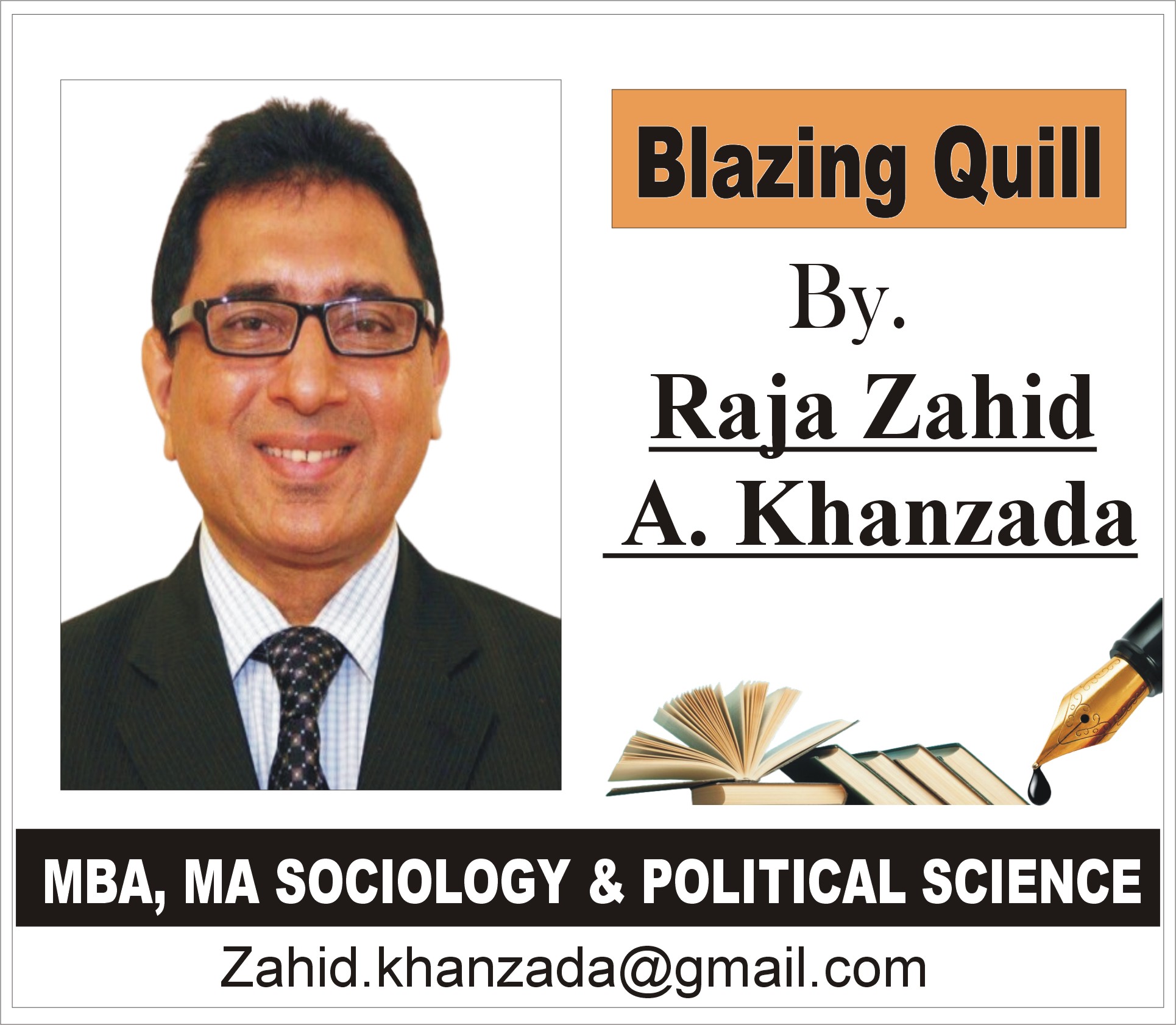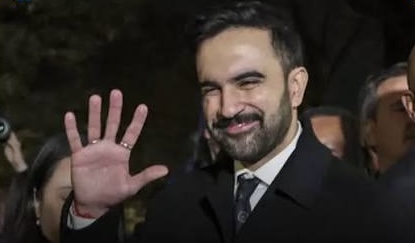A Promise of Light in a City of Darkness: Zohran Mamdani’s Victory and the New Politics of Rebellion
By Raja Zahid Akhtar Khanzada
When the political dusk settled over New York City, a young man lit a lamp. His name is Zohran Mamdani,34 years old, a Muslim, a Democrat, a Socialist — who, on November 4, 2025, won the mayoral race to become the first Muslim, first South Asian, and youngest mayor in the city’s history. His victory was more than a political triumph; it was a rupture in the old order, a quiet uprising that signaled a shift in the city’s moral and political imagination.
Throughout his campaign, Mamdani spoke for those crushed beneath the city’s “magnificent yet merciless cost of living.” And on the night of his victory, standing before an ocean of supporters under the bright lights of Queens, he began not with celebration, but with defiance:
“In this moment of political darkness, New York will be the light.”
It wasn’t merely a line — it was a promise, a manifesto of belonging for those who had long been unseen.
When asked about his youth and inexperience, Mamdani didn’t hesitate:
“We will walk into City Hall in fifty-eight days. Expectations will be high, and we will meet them.”
The tone was not arrogance but faith — faith in people, in purpose, in possibility. He painted a vision of greatness measured not by towers and budgets, but by dignity and security:
“When every tenant wakes knowing rent won’t break them.
When every grandfather’s granddaughter sleeps safely in the home he built.
When every single mother catches her bus on time — then we will know what greatness means.”
His words — both intimate and historic — rippled across a nation weary of cynicism.
And then came the moment that turned the night electric. Mamdani looked straight into the camera and spoke to Washington:
“Donald Trump, I know you’re watching. To get to one of us, you will have to go through all of us.”
It was a line that drew thunder from the crowd — a line that now stands like a wall between the arrogance of power and the courage of people.
Trump, typically, fired back later that night:
“This is just the beginning.”
But the truth was the opposite — this was not the beginning, but the end of fear as a political tool. Mamdani told his supporters:
“We won because New Yorkers believed the impossible could happen. We won because we decided that politics will no longer be done to us — we will do politics ourselves.”
That, perhaps, was the real revolution — the return of politics to the hands of those it had forgotten.
He acknowledged how improbable his rise was:
“Conventional wisdom says I shouldn’t be here: I’m young, I’m Muslim, I’m a Democratic Socialist. But my greatest crime is that I am not ashamed of any of it.”
In that one line, the excluded found their echo. Mamdani had turned vulnerability into defiance — and defiance into strength.
His blueprint is unapologetically radical: stabilize rents, make public transit free, provide childcare for every family, raise taxes on the wealthy, and build a city where Muslims, immigrants, Black and brown workers, and LGBTQ+ New Yorkers can finally feel ownership of the streets they built.
“This city will not just be a dream it will be action, a place built on love, equality, and justice.”
Critics called it utopian. Mamdani smiled and borrowed from Mario Cuomo:
“Campaigns are poetry, but governing is prose.”
And then added, almost like a poet aware of his own prophecy:
“If politics is prose, then let’s write it like poetry and build a city where every heart finds light.”
For readers from Pakistan, this story is not distant; it is reflective. It mirrors our own longing to see truth triumph over tradition, to see courage win against convenience. Mamdani’s rise shows that transformation does not begin in the marble halls of power but in the quiet conviction of ordinary people who refuse to surrender.
“We will no longer let politics be done against us. Now, we will do it ourselves.”
That sentence, born in New York, may yet find its way into the hearts of Karachi, Lahore, and Islamabad, if only someone is still listening.
And as the night drew to a close, Mamdani left the stage with words that may define a generation:
“If politics is prose, then let’s bind it like verse, and build a city of light for all.”
It was not a speech, it was a covenant.
A covenant of persistence over perfection.
Of courage over caution.
Of light over darkness.
Because every generation learns, in its own way, that when the night deepens,light is near.




